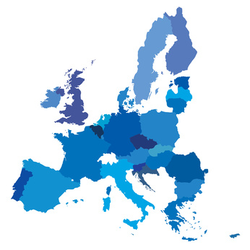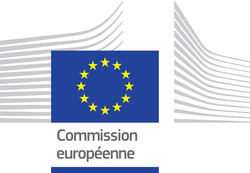Compliance and Regulation Law bilingual Dictionnary

Regulation Law presupposes moving from a political conception of acts (that is to say, a collective decision expressed by the State) or a civilist one (that is, a will expressed by one or several individuals in one Contract) to an economic vision of organizations whose action is the expression of the market. If one relies on the adjustment of supply and demand, that is to say, the meeting of desires and interests, there will be "self-regulation", which is the "law of the Market ", referring to Competition Law. The act of the operators is only a reflection of this sort of natural law, in action.
Regulation is then more complex because it integrates this economic rationality of the actors and systems in which the first onese are agents (homo economicus), but Regulation aims at something other than this mechanical rationality, either because of a market failure (for example in case of natural monopoly) or because the author of the standard, eg the State or the Regulator wants to obtain more than the market can give (eg access to common goods such as health) , even for insolvent claimants).
In this case, special written norms are drawn up, ex ante interventions designated in English by the term of "regulations" (and in French by the term of "réglementation"). The Regulation Law, the regulatory system, is adequate if it constitutes an incitation for economic agents to adopt behaviors that concretize the aim sought by the author of the regulatory mechanisms.
The Regulation Law will then rely on economic science to produce the right "incentives", leaving agents - producers, supplyers, claimants, consumers, taxpayers, the most diverse stakeholders - free to make choices, but inciting them to make choices that will produce in isolation or in a comprehensive or cross-breeding way, immediately or in the long term, a result corresponding to that which was intended from the outset by the person who designed the standard. In this respect, the Law of Regulation is highly strategic, whether of a technical nature, aimed at mitigating a market failure or more political. In this, it is also of a liberal nature, since it is not orders formulated to obedient people, but spaces of freedoms constructed for the benefit of persons.
This strategic use of Law then requires the necessary detour through the economic analysis of Law, that is to say the analysis of Law in its economic effects. It presupposes, among those who use the norm, not only the Legislator but also the Judge, a knowledge of the economic mechanisms, for example the theory of incentives, incomplete contracts or behavioral economics, three liberal theories on which are based the interventions Ex Ante of the public authorities and which the judgments of the Courts extend.
That is why the Economic Analysis of Law is a fully discipline. It was created in the United States by Ronald Coase (Nobel Prize for Economics in 1991). It may be merely descriptive and reveal what economic effects the Law has produced. This conception, in particular that of Richard Posner, makes the economic analysis of the law an instrument of expertise for the political decision-maker who can take it into account in order to modify the norms, and for the judge, who can take it into account for Interpreting them. A more radical conception of the so-called normative economic analysis of law is to argue that the conclusions of the analysis would oblige the decision-maker and the judge to adopt the "efficient" interpretation designated by the economic analysis without being legitimate for adopting others.
Philosophical in nature, this issue is decisive because in the first case the law and the jurists - in particular the Legislator and the Judge - still have an autonomous existence, in the second case they no longer exist really, are only the formal and explicit binding of the "law of the market" whose nature is non-legal. Law then is a way of execution, a pure and simple effectiveness of a another essential Law that is external to it, that of the "Law of Market, which is the adjustment of the offer and the demand.
Common law systems tend to fall into the normative excess of confusing what is merely a description of choice and to adopt what would be a "decision" taken by the economists themselves: Law then, as a normative system, is only what gives the enforceability and legal certainty of what becomes truly normative, e.g. the economic value of the adjustment of supply and demand. Civil Law systems integrate the Economic Analysis of Law in a manner more in keeping with the thinking of founders or current theorists such as Cass. Sunstein, allowing Legislators and Courts to integrate the economic dimension of situations without their economic reasoning implying the solution to be retained, as choices remain in Law, expressing values, and in legal systems being governed by their own legal notions and rules, at a distance from the Economy.
Even in its descriptive form, the economic analysis of the law is generally rejected in France as it disregards the role of the law in that it carries moral values. It is in reality to ignore its merely descriptive, instructive and useful function, and the fact that it opens instead the amplitude of the rational choice offered to political decision-makers and courts. Moreover, regulation is not only a technical discipline, it is also a political and philosophical issue. Descriptive economic analysis is more appropriate than the normative economic analysis of the law, which claims to vassalize and even destroy the other disciplines, which are substantially ignored.

A monopoly refers to the power of a person to remove from a good its utility by excluding others. The monopoly refers to a situation on the market, the monopolist being the sole operator in the market. Lawyers are accustomed to the monopoly conferred by Law, for example the one that was the monopoly for the national public enterprise for electricity. In this case, what is done may be defeated, and the legislature may withdraw that privilege especially if the author of this norm is better placed in the hierarchy of norms than the previous author. For example, the European Union legislature withdrew the legal monopolies by means of directives from most of the operators holding them in the regulated sectors in order to liberalize them.
But the monopoly can have an economic source. Indeed, it may happen that a first operator constructs a structure, for example a wired telecommunications transport network. Because he is alone, agents on the market must resort to him to carry their communications, his business will be profitable. But from there, if a second operator built such an infrastructure, it would inevitably be in deficit for insufficient applicants. This is why no rational economic agent will build a second network. Thus, this network will remain unique. It is then an economically acquired monopoly that the legislative will can not change its nature. That is why it is called "natural".
Since what is can not be changed, Community law has taken note of the monopolistic nature of the majority of networks and the correlated power of their owner or manager, but has correlatively provided for their supervision by a regulator who not only Ex post to resolve possible differences between the infrastructure manager, the natural essential facility, and the one who wants to access it, but also, through an Ex ante power, to negotiate with that manager the return on his capital, his commitments investment in the network, etc., or even more directly by imposing on it the way in which it fixes access tariffs and so on.
These economically natural monopolies are therefore more powerful than legal monopolies, which States and lawyers have taken a long time to understand, but this also explains the reverse tendency of economists to write laws, The texts must handle this type of notions, its writers caring little about the political order and legal notions. The fact that the laws and regulations on regulated situations and supervised operators have long been elaborated solely from the point of view of lawyers, particularly of the public service, which was regrettable, does not justify this passage from one extreme to the other.

In classical law, efficiency is a quality but it is not the only one and it does not sum up Law. Indeed, if we define effectiveness as the quality of a person or a thing, material or immaterial (such as a law or a judgment, for example) to produce the effect one is looking for, then it is better for the Law to be effective rather than not. Beyond this truism, Law, being a practical art, is particularly sensitive to this quality.
But Law is not reduced to that. It expresses values, virtues, symbols, social rules. It institutes human beings as persons. It wants to make these rules effective, but on the one hand it balances this concern with others and, on the other hand, it seeks to express the very nature of what it poses, for example the attribution of prerogatives, of rights for the benefit of a particular person, if necessary in a costly and ineffective manner (eg social rights or procedural guarantees).
Regulatory theories, often based on the economic analysis of law, consider law as a "tool", an instrument that must be the most flexible, the simplest and the most secure Possible to achieve a goal that economic theory draws: for example, effectively building competition or preventing banking crises.
The concern for the goal becomes the first, it becomes the center: efficiency becomes the center of Law, while the latter becomes teleological. Law is reduced to being an instrument. This instrumental conception, which can be supported but which does not correspond to the classical conception of Law because it breaks its conceptual autonomy, permeates the regulatory law, in particular because it was thought by economists more than by of lawyers.
The transformation is particularly strong in matter of repression. The legal system has traditionally constituted criminal law as an autonomous branch. The regulatory repressive rules today tend to be used to increase the effectiveness of the ordinary regulatory rules, whether they are themselves corporate law (governance), civil law or public law. In this, repressive punishment is only intended to render effective a rule which is external to it. This primary concern for efficiency removes the guarantees and increases repression, which is now at the heart of the regulatory systems, which, to be effective, cease to be national, while criminal law is synonymous with the state and the regalian.

Almost all energies are products whose economic circuit is regulated, in a more or less homogeneous way. Thus, gas and electricity are often regulated by the same authorities, as in France, regulation entrusted to an authority which in 2000 was first the Commission de Régulation de l’Électricité - CRE (French Commission of regulation of the electricity) to become the Commission de Régulation de l'Energie -CRE (French Commission of regulation of the energy), extending its competence to gas. Renewable energies, such as photovoltaic (solar panels), or wind energy (wind) or energy through water (dams) are more subject to State plans in the hands of the traditional administration. As for oil, it is currently regulated only through an agreement between producing countries, OPEC (Organization of Petroleum Exporting Countries), which smooths the market movements with the perverse effects that are known.
Energy is a regulated sector because at the same time it is made up of scarce resources (except the renewable energy hypothesis, which is currently privileged and elevated to the rank of European policy) even though energy is the support of all ordinary markets for goods and services since there can be no economic activity without an efficient and reliable energy system over the long term.
As regards transport, which is based on the control of an essential infrastructure, Community aw still tolerates that the companies which manage it remain the property of the incumbent operators of which they are the subsidiaries, There is an accounting separation between its producers and its managers, consolidated by a distinction of legal personalities. The network operator is a "crucial operator", since all energy is a network industry. It therefore has multiple public service obligations, in particular to assure th buyers' and sellers"e right of access of energy. It is common for disputes to arise between the latter and the network operator, which are then brought before the regulator, in France the CRE giving a solution ;; its decision may be challenged before the Court. The distribution activity is closely linked to the transport activity in terms of energy, and the same difficulties with respect to access to the meter are not found in access to the meter to the local telecommunication loop.
Moreover, acts of sales and purchases in the energy sector are not part of a competitive logic. Often, it is still the Government that sets the selling price of electricity and gas, while oil Is left to the price resulting from an agreement between dominant producers of the market. France has experienced the saga of the possibility for consumers to leave the regulated price system to adopt the free price, the French Parliament by the law of 10 July 2008 having chosen to leave the free prices to return to the regulated prices if they are more favorable to the consumer.
We therefore see that the aim of energy regulatory system is to open up to competition but also to optimally manage these scarce resources, which are rare even when they are indispensable. That is why the nuclear issue is central to the countries that have made the choice and are continuing to do so. The issue of energy transition is now a major major issue. In France, it is now based on the Law of 17 August 2015 on the Energy Transition for Green Growth. Here we see how long-term regulation, industrial policy and innovation are linked.
Finally, energy generates activity both at very long term and at very high risk. This is why it does not support the simple mechanism of the competitive market. We must think of this sector as the banking sector because it is characterized by systemic risks, the system not being able to authorize itself for example a nuclear explosion. The Californian energy crisis is equivalent to a financial crisis. Energy requires decennial planning and considerable investment. States are required.

The environment expresses the concern that man has henceforth of nature, either in itself, or because in destroying it he destroys himself. The interests are thus crossed and cumulated: nature is protected in itself, for him and for the generations to come.
A branch of law was born, "Environmental Law", of which it can not be said whether it belongs to public or private law. It was until recently conceived as an administrative police, based on declarations, authorizations, classifications of the activities generating pollution, and organization of the treatment of waste. We are in the process of switching to environmental regulation, as shown by the new texts of European law, designed by the European Commission that link energy regulation and environmental regulation.
In the long term, it is a question of planning and organizing a healthy environment, thanks to renewable energies, not so much on the basis of constraints or one-off interventions but rather on the basis of incentives and market mechanisms such as CO2 quotas (allocation of quotas to companies by the state and then emergence of prices by meeting the supply and demand thanks to the market), this construction of long-term equilibria on and from the market being itself the sign of regulation.
The "environmental concern" has also been established with financial regulation, in two ways. In the first place, financial techniques are a means of developing tools for the environment, as are the CO2 markets, but also the specific obligations of what would be an environmental compliance for listed companies. Financial regulators of new missions. In the second place, environmental issues are themselves financialized, as if they identify new risks and reveal new uncertainties: as such, the Banking and Financial Regulators appreciate them.

In a self-regulated system (such as a market governed by free competition), the equilibrium operates spontaneously by the meeting of the whole of the supply with the whole of the demand, as soon as the information is given on prices. The snag that constitutes an anti-competitive practice, cartel or abuse of a dominant position, which prevents the emergence of the break-even price, is repaired on an ad hoc basis and ex post by the Competition Authority.
But Regulation intervenes in the event of a market failure: Regulation then has the primary function of building balances which are not established and do not maintain spontaneously. For example, this will involve a balance between competition between banks on the one hand and the prevention and management of systemic risk on the one hand, which implies a certain coordination between banks, coordination close to the agreement.
In the same way, the Regulator will have to build a balance between the principle of competition, with exact prices which can therefore be high, and social tariffs for populations in difficulty having nevertheless to gain access that the Politics will have posed as being a "common good. ", like certain drugs, even electricity.
These unstable balances must be maintained in the long term. This is why the Regulator, unlike the Competition Authority, does not intervene on an ad hoc basis but is permanently present, in a way internalized in the sector that it continuously monitors and controls. These long-term balances justify recourse to multi-year plans, in particular through contracts for example in postal matters or concerning airports (regulation contract), the contract making it possible to stabilize apprehension of the future.

The theory of essential facilities was invented in the United States (essential facilities) by the Supreme Court in a judgment of 1911, based on competition Law alone.
The Court ruled that the operator of a transport network has a natural monopoly since no other economic agent will duplicate it. Therefore, by this fact alone, it is in a dominant position and has the power to impose its prices on companies that have no other solution than to request from it access to means of transport. The Court considered that there was abuse of a dominant position, either because there was refusal of access, or because there was too high a price for this access, the sanction then not being damages but compensation in kind consisting in forcing the network operator to open up access to it at a fair price to its competitors.
Thus the theory of essential facilities, taken up in Community Law in 1978 and then in French Law, made it possible on the sole basis of competition Law and by judicial ingenuity to achieve the same ex post result as an ex ante regulation system. network industries.

Europe is a political project.
This project was conceived at the end of the second world war with the aim of never having a war between the European countries. For this Jean Monnet had the idea of building an economic market as the first step, the second step being a political government. This second stage remains to be established today, since the European Constitution has failed.
Europe is therefore in the middle of the ford since Community law has built the three freedoms of movement and competition law, but we have no economic policy or market governance. Thus, for none of the regulated sectors of the European regulator, many say, for example, the need for a European banking and financial regulator. The financial crisis that the United States exported to Europe has generated the secondary benefit of laying the foundations of the European banking Union and coordination of financial markets is being put in place.
But historically, Europe has exercised its power and weight on the Member States by its own Competition Law and the principle of freedom of movement and installation without associating or replacing it with European regulatory perpective or that the Member States can effectively oppose their traditional system of centralized regulation, for example, through the mechanism of State control over public monopolistic enterprises.
Moreover, in a movement perceived at first as a great aggression but more in line with the prospect of building a "Europe of Regulation", through the directives of liberalization, first of all concerning telecommunications, then Electricity, and then gas, in energy or telecommunications, Europe has imposed on States the guidelines for the new regulatory systems, which continue to remain national. It was spontaneously that the National Regulators were in each of the sectors networked to exchange information, to increase their effectiveness. As long as Europe can not establish an economic government, because there will not be a political Europe, it will be difficult to argue that there is a Europe of Regulation, insofar as regulation is a triangle between economics, law and politics, and the latter is most often lacking at European level, for example in the technological choices to be made in the sectors.
The movement has historically been very differently in finance. It did not come from Europe, but from the United States and did not take a binding form. Countries, notably France, wanted to gain the confidence of foreign investors, decided in the late 1960s to opt for models of independent regulators: the "Commission des Opérations de Bourse -COB" was designed on the American model of the Securities and Exchanges Commission -SEC".
Only in the aftermath of the financial crisis, itself of banking origin, did Europe appear in these sectors. Europe is in the making. It is based on the European Central Bank (ECB). This evolution can produce a rebalancing of institutions and subjects, with the ECB coming in balance with the European Commission, which remains focused on Competition Law.
But there are "two Europes". The first, described above, is "economic" or of the "political economy." The second is the Europe of Human Rights, constructed by the same catastrophe constituted by the Second World War on the European Convention on Human Rights. Human Rights (ECHR). They are articulated closely, but sometimes with difficulty, in the Law of Regulation.
European Convention on Human Rights (ECHR)

Article 6 of the European Convention on Human Rights (ECHR) states that everyone has the right to an impartial tribunal.
Insofar as the regulator in France is most often an Independent Administration Authority (IAA) and this is assimilated to a court, the regulator is required to comply with the ECHR. This contributes to the jurisdictionalization of regulation.
Thus, when there is a sanction or dispute settlement procedure, a real trial is established, and companies, helped by their lawyers, must benefit from access to the file, from the adversarial principle, from rights defense, the right to participate in the debate at the hearing. These fundamental procedural guarantees also include the obligation for the regulator to justify its decisions, which facilitates the control exercised over it by the appeal courts, and to create by accumulation of decisions a sort of case law of the regulators themselves. .
Thus, human rights by procedure have entered the regulatory authorities. This refers to one of the issues that is emerging, namely the balance that must be established between the laws of the market and the non-economic prerogatives of individuals.

The United States established regulatory authorities at the end of the 19th century: starting from the principle of the market, they tempered it by setting up regulators, after noting market failures, for example in terms of transport, in the event of economically natural monopolies or essential facilities. The tradition of the European Union is the reverse since the States, in particular the French State, have considered that sectors of general interest, deemed unsuitable for the competitive pattern because not corresponding to the operational pattern of the meeting of supply and demand, and to serve the missions of public services, were to be held by the State, either directly by public establishments, or by public enterprises under the supervision of the ministries.
Evolution in Europe came from community Law. Indeed, after the Second World War, the idea was to build a market which was to be "common" to European countries so that they could no longer wage war on each other in the future. To achieve this goal, the borders between them were lifted thanks to the principles of free movement of people, goods and capital. In the same way, the defense by each of the States of its own national companies by State aid has been prohibited so that any company, even foreign, can enter its territory, so that a common internal market can be established. Finally, a competition Law was necessary to prohibit companies and States from hindering the free functioning of the market, which would have slowed down or even stopped the construction of this internal market, which was an essentially political goal of the Treaty of Rome.
To carry out this political goal, the European Commission and the Court of Justice of the European Union (CJEU, previously called the Court of Justice of the European Communities - CJEC - until the Treaty of Lisbon) have prohibited any behavior of agreement or of abuse of a dominant position, even on the part of public enterprises, as well as any state support (except in the event of a crisis). Likewise, in perfect political logic, but also in perfect contradiction with European national traditions, European texts, regulations or directives have liberalized previously monopolistic sectors, first of all telecommunications and then energy. This was the case for telecommunications with the 1993 directive, the 1996 directive for electricity and the 1998 directive for gas.
Because of the hierarchy of standards, the States, except to be sued before the Court of Justice by the European Commission in action for failure, were obliged to transpose by national laws these European texts. Thus, by force, community law, both through general competition Law, but above all to achieve its political goal of building a single and initially peaceful internal market, has triggered in Europe a system of economic regulation in all network industry sectors, a system which was nonetheless foreign to the culture of the Member States. This was not the case with banking and insurance regulations, sectors which have always been threatened by systemic risk, and as such have been regulated and supervised by national central banks for a very long time.
Community Law has for 30 years plunged into national Law while ignoring them, which could also be profitable, and on the basis of competition Law, the political dimension of the European project having been forgotten, no doubt over time as the War itself faded from people's minds.
The effects of globalization and the financial crisis have constituted a new turning point in Community Law which, since 2010, has been built no longer to modify national Laws - and destroy them in part - but to build a new Community Law which should neither to Competition Law nor to National Law: Community Regulation Law, which makes room for individual rights and attempts to build over time a system that is robust to crises. Thus, by texts of the European Union of 2014, both a Banking Union and a new Law on Market Abuse is being built, which aims to establish a common law for the integrity of financial markets.
One of the challenges is what could or should be reconciliation between the two Europe, an economic and still not very social Europe on the one hand and the Europe of Human Rights, which is based on the European Convention on Rights of Man. This is not on the agenda.

The Ex Ante, the usual expression in Economic vocabulary, corresponds to the more traditional expression in Law of A priori, and refers to the apprehension of a situation before it is constituted. For example, a law or a regulation is an ex ante act, which will regulate situations after the adoption of the text, of the decision or general disposition adopted by an authority. There is no retroactivity. Conversely, Ex Post, the usual expression in Economics and which corresponds in Law to the A posteriori, refers to a reaction of an organism to a situation or a behavior observed. Thus all individual decisions on sanctions, or all dispute or mediation settlements, come under ex post. For example, judicial acts fall under ex post.
Competition Law is usually recognized in that it develops in the ex post, since the market is established and the competition authority reacts to anti-competitive practices, which may be sanctioned, ie in ex post . Conversely, because it is a question of building competition or of maintaining non-natural balances on a permanent basis in sectors, Regulation Law uses tools that could be called "blank pages", essentially regulations, that is to say ex ante. This explains why the English term of "regulation" express at the same time the regulatory system as a whole and the texts adopted, the regulations (in French "réglementation"), because this ex ante tool is so important, is to intimate with regulatory spirit and perfectly expresses this ex ante distinguishing Regulation Law from Competition Law.
This opposition is fundamental because it not only sheds light on the distinction between competition and regulatory system, but also dictates the distribution and scope of powers. Indeed, to simply react ex post, it is enough to have a power to punish, to order reparations, to decide the different. Ex-ante intervention requires much greater powers since the regulatory authority dictates behavior in order to build markets and sectors. This magnitude of ex-ante powers explains that the title of regulator is so envied, and that even competition authorities sometimes present themselves as regulators of competition, as if constructing them beyond defending them, in particular by the adoption of provisional measures. Confusion is often made or even maintained by the oxymoron of "competitive regulatory system" made by these Competition Authorities, even if they are not limited to a specific sector.
This shows the fragility of the distinction between ex ante and ex post. Indeed, it may be open to criticism that competition authorities seek to appropriate ex-ante powers to exercise them on all markets, even though these markets do not justify the exercise of regulatory mechanism, but it is true that it exists a continuum between ex ante and ex post. This continuum is exercised in both directions. In the sense of the ex-ante to the ex-post, it is the Regulator himself who, after having taken the ex ante standards, ensures its effectiveness through continuous monitoring and sanctioning failures.
Moreover, in the sense of the ex-post to the ex-ante, because, as gaming theory shows, especially in the banking and financial markets, agents are anticipatory, a decision to sanction or to settle different is interpreted as a signal, for example of severity or warning, of tendency, a kind of act of doctrine of authority, that the operators have integrated into their future behaviors. Thus, the ex post act becomes the cognitive ex ante.